Oman Custom Clearance: Laws & Regulations
Customs clearance plays a crucial role in facilitating the smooth flow of goods across borders. It protects domestic industries from unfair competition, safeguards national security, and generates revenue for governments.
Efficient customs clearance procedures can significantly impact a country’s competitiveness in the global trade arena.
The customs clearance process in Oman is overseen by the Royal Oman Police (ROP), specifically the Customs Directorate. The process typically involves:
- Submitting required documentation.
- Inspecting goods.
- Paying applicable duties and taxes.
- Obtaining a clearance certificate.
For personal effects and temporary imports, simplified procedures may apply.
Contents
Regulatory Framework in Oman
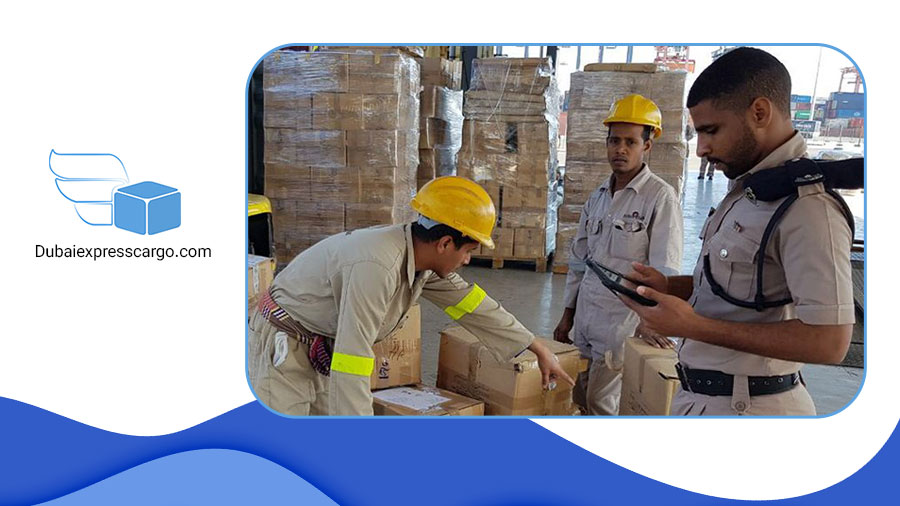
Oman Customs Authority
1. Role and Responsibilities
The Royal Oman Police (ROP) is responsible for enforcing customs laws and regulations in Oman. Its key responsibilities include:
- Administering customs laws and regulations
- Overseeing the customs clearance process
- Collecting customs duties and taxes
- Ensuring compliance with international trade agreements
- Protecting national security and consumer interests
2. Key Regulations and Laws
The Oman Customs Authority adheres to a comprehensive set of regulations and laws that govern customs procedures in the country. These include:
- Customs Law: This primary law outlines the general principles and procedures for customs clearance in Oman.
- Customs Tariff: This document specifies the applicable customs duties and taxes for various imported goods.
- Customs Regulations: These regulations provide detailed instructions and guidelines for implementing the Customs Law.
- Prohibited and Restricted Goods List: This list identifies prohibited goods or specific restrictions on their import or export.
International Agreements and Treaties
Oman is an active participant in various international trade agreements and treaties.
1. Oman’s Trade Agreements
Oman has entered into several free trade agreements (FTAs) with key trading partners, including the Gulf Cooperation Council (GCC), the United States, and the European Free Trade Association (EFTA).
These FTAs provide preferential tariff rates and simplified customs procedures for goods traded between Oman and its FTA partners.
2. Impact on Customs Clearance Procedures
International trade agreements and treaties have a direct bearing on customs clearance procedures in Oman.
These agreements often stipulate specific rules and requirements related to customs documentation, valuation of goods, and dispute settlement mechanisms.
Oman’s Customs Authority works closely with its international partners to ensure that its customs procedures align with the terms of these agreements, facilitating smooth trade and compliance.
Documentation Requirements for Oman Customs Clearance
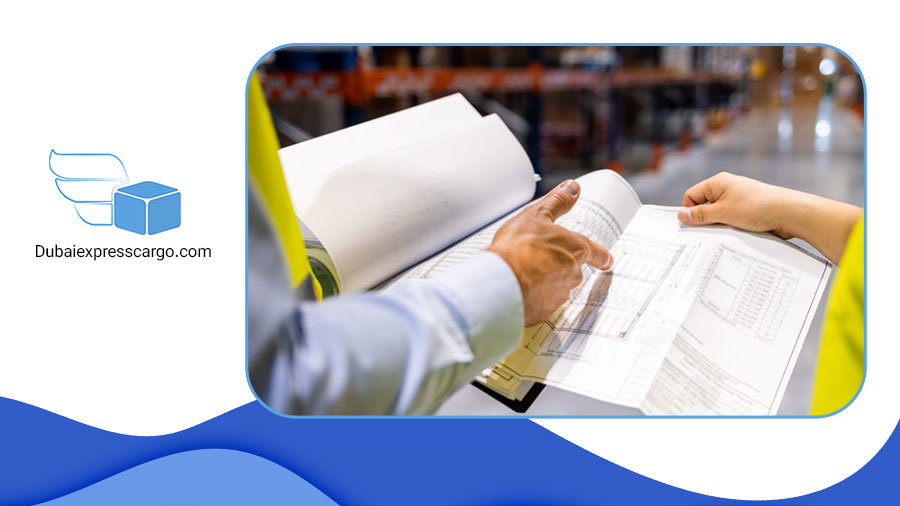
List of Essential Documents
1. Commercial Invoice:
A commercial invoice is a mandatory document that serves as a detailed record of the transaction between the buyer and seller. It provides a comprehensive description of the goods being imported or exported, including their quantities, values, and terms of sale.
2. Packing List:
A packing list is an essential document that provides a detailed breakdown of imported or exported goods. It includes itemized descriptions, quantities, weights, and packaging specifications, allowing customs officials to verify the shipment’s contents.
3. Bill of Lading/Airway Bill:
A bill of lading or airway bill is a document issued by a carrier, such as a shipping line or airline, acknowledging receipt of the goods for transportation.
It serves as a contract of carriage and a document of title, providing details about the shipper, consignee, port of origin, port of destination, and terms of shipment.
4. Certificate of Origin:
A certificate of origin is a document certifying the country of origin of the goods imported or exported. It is often required for preferential tariff treatment under free trade agreements or to comply with specific country requirements.
5. Import/Export Licenses:
Import/export licenses are required for specific goods, such as hazardous materials, controlled substances, or goods subject to trade restrictions.
These licenses authorize the import or export of the goods and ensure compliance with relevant regulations.
Specialized Documents
1. Phytosanitary Certificate:
A phytosanitary certificate is a document issued by the competent authority of the exporting country to certify that the plant materials or products meet the phytosanitary requirements of the importing country. It is required for the import of plants, fruits, vegetables, and other plant materials to prevent the introduction of pests and diseases.
2. Certificate of Conformity:
A certificate of conformity is a document issued by a designated conformity assessment body to certify that a product complies with specific technical requirements or standards.
Importing electrical and electronic products, toys, and other regulated goods is often required.
3. Inspection Certificates:
Inspection certificates are documents issued by independent inspection companies to verify the quality, quantity, or condition of goods before shipment. T
hey may be required for specific goods, such as food products, machinery, or hazardous materials, to ensure safety or quality standards compliance.
Customs Duties and Taxes
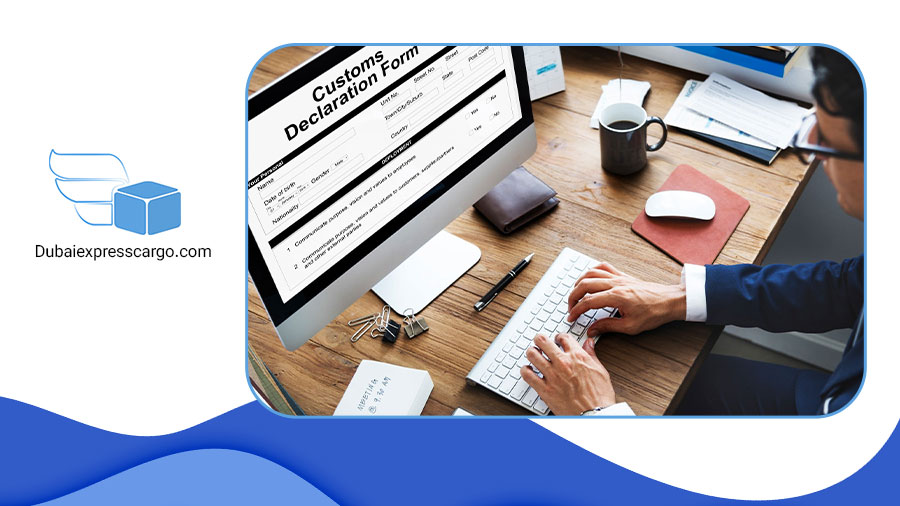
Types of Duties
1. Import Duties
Import duties are taxes levied on goods imported into a country. They are typically applied as a percentage of the value of the goods, known as ad valorem duties.
Import duties are used to protect domestic industries, generate revenue for the government, and regulate trade flows.
2. Excise Duties
Excise duties are taxes levied on goods produced or consumed within a country. They are typically applied to specific goods, such as tobacco products, alcoholic beverages, and fuel.
Excise duties are used to discourage harmful goods’ consumption, generate government revenue, and control production levels.
Taxation System
1. Value Added Tax (VAT)
Value-added tax (VAT) is a broad-based consumption tax applied to most goods and services in Oman. It is levied on the value added at each stage of the production and distribution process. VAT is typically applied at a standard rate of 5%.
2. Customs Tariffs
Customs tariffs are schedules of duties and taxes applicable to imported goods. They specify the applicable duty rates for different types of goods based on their classification under the Harmonized System (HS) coding system.
Customs tariffs are used to implement trade policy objectives, such as protecting domestic industries, promoting specific sectors, and generating revenue.
Calculation Methods
1. Ad Valorem
Ad valorem duties are calculated as a percentage of the customs value of the goods. The customs value is the value of the goods when they enter the country, including all costs and expenses incurred up to that point, such as transportation, insurance, and packing.
Related Article: THE CHEAPEST WAY TO SHIP TO OMAN
2. Specific Duties
Specific duties are calculated as a fixed amount per unit of the goods, such as per kilogram, liter, or item. Particular duties are typically used for goods that are difficult to value or have a low value-to-weight ratio.
Customs Clearance Procedures
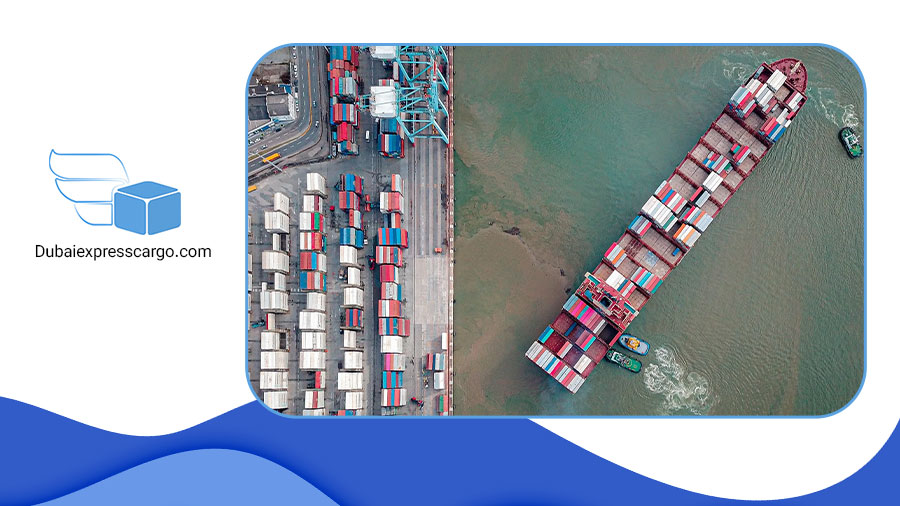
Pre-shipment Activities
Before the actual shipment of goods, importers and exporters should undertake certain pre-shipment activities to ensure a smooth and efficient customs clearance process. These activities include:
1. Compliance Checks
- Verify that the goods being imported or exported are not prohibited or restricted by Omani customs regulations.
- Check for any specific licensing or permit requirements for the goods.
- Ensure that the goods comply with all applicable product standards and technical regulations.
2. Tariff Classification
- Classify the goods under the Harmonized System (HS) coding system to determine the applicable customs duties and taxes.
- Identify any applicable preferential tariff rates under free trade agreements or other trade arrangements.
- Consult with customs authorities or experienced customs brokers for assistance with tariff classification.
Declaration Submission
1. Electronic vs. Manual Submissions
Oman has implemented an electronic customs clearance system that allows for the online submission of customs declarations.
This system streamlines the process and reduces the need for paper documentation. However, manual submissions are still accepted in certain cases.
2. Timeframe for Submission
Customs declarations must be submitted within a specified timeframe, typically within 24 hours of the arrival of the goods. Late submissions may result in penalties or delays in customs clearance.
Customs Inspection
1. Random Inspections
Customs authorities may randomly select shipments for inspection to verify the accuracy of documentation, the physical condition of the goods, and compliance with applicable regulations.
2. Risk-Based Inspections
Customs authorities may also target shipments for inspection based on risk assessment criteria, such as the type of goods, the origin of the goods, or the importer’s history. This risk-based approach focuses inspection efforts on shipments with a higher risk of non-compliance.
Customs Clearance Services in Oman
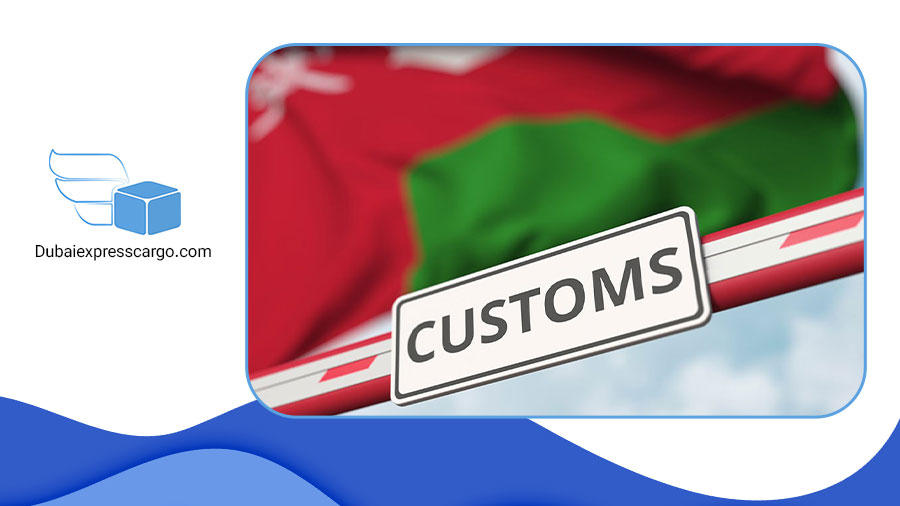
Role of Customs Brokers
Customs brokers like Dubai Express Cargo are crucial in facilitating the customs clearance process for importers and exporters. They act as intermediaries between the trader and the customs authorities, providing expert guidance and assistance in navigating the complexities of customs regulations and procedures.
1. Licensing and Qualifications
Customs brokers must be licensed and meet specific qualifications to operate in Oman. These qualifications typically include:
- A relevant university degree in customs clearance or a related field
- Proven experience in customs clearance procedures
- Thorough knowledge of Oman’s customs laws and regulations
- Fluency in Arabic and English
2. Advantages of Using Customs Brokers
Engaging the services of a qualified customs broker offers several advantages for importers and exporters:
- Expertise and Efficiency: Customs brokers possess in-depth knowledge of customs procedures and can expedite the clearance process, minimizing delays and potential penalties.
- Accuracy and Compliance: Customs brokers ensure that all documentation is accurate and compliant with Omani customs regulations, reducing the risk of non-compliance issues.
- Risk Management: Customs brokers can identify and mitigate potential risks associated with customs clearance, such as incorrect tariff classification or incomplete documentation.
- Cost-Effectiveness: While there is a cost associated with using customs brokers, the potential savings from avoiding delays, penalties, and non-compliance issues often outweigh the fees.
Customs Clearing Agents
Customs clearing agents like Dubai Express Cargo are individuals or entities authorized by customs authorities to assist importers and exporters in completing customs formalities.
While customs brokers have a broader scope of expertise, customs clearing agents typically focus on specific tasks such as:
- Preparing and submitting customs declarations
- Arranging for customs inspections
- Handling payments of duties and taxes
- Obtaining clearance certificates
1. Responsibilities
The responsibilities of customs clearing agents typically include:
- Acting as a liaison between the trader and customs authorities
- Ensuring the accuracy and completeness of customs documentation
- Guiding traders through the applicable customs procedures
- Keeping up-to-date with changes in customs laws and regulations
- Handling customs correspondence and inquiries
2. Accreditation Process
To become a customs clearing agent in Oman, individuals or entities must undergo an accreditation process that typically involves:
- Submitting an application to the customs authorities
- Meeting specific eligibility criteria, such as education, experience, and financial standing
- Passing a comprehensive examination of customs laws and procedures
- Obtaining a customs clearing agent license
Challenges and Solutions in Oman Custom Clearance
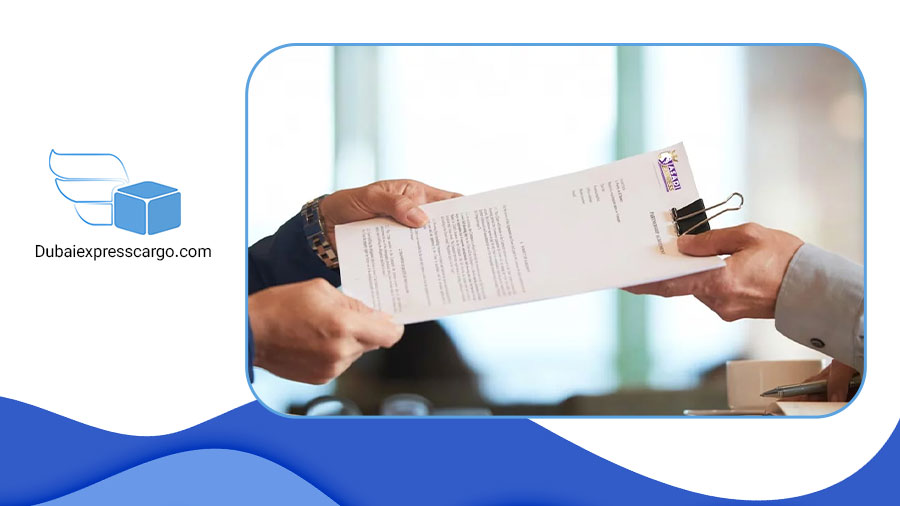
Common Challenges in Custom Clearance
1. Documentation Errors
Incomplete, inaccurate, or inconsistent documentation is a frequent cause of delays and complications in customs clearance. Errors in documents such as commercial invoices, packing lists, and certificates of origin can lead to lengthy inquiries, additional inspections, or even penalties.
2. Customs Delays
Customs delays can arise from various factors, including:
- High volume of shipments: During peak seasons or when there are surges in trade, customs authorities may experience backlogs, leading to delays in processing shipments.
- Complexities of customs procedures: Navigating the intricacies of customs regulations and procedures can be challenging, especially for inexperienced importers and exporters.
- Customs inspections: While essential for ensuring compliance, physical inspections can add to processing times.
Best Practices for Efficient Custom Clearance
1. Compliance with Regulations
Thorough understanding and adherence to Oman’s customs laws and regulations are paramount for efficient customs clearance. This includes:
- Correct classification of goods under the Harmonized System (HS) coding system
- Accurate and complete documentation, including commercial invoices, packing lists, certificates of origin, and any required permits or licenses
- Proper labeling, marking, and packaging of goods to facilitate inspections
2. Automation and Technology Integration
Leveraging technology can significantly enhance customs clearance efficiency. Importers and exporters can benefit from:
- Electronic customs declaration systems: Online submission of customs declarations reduces paperwork, expedites processing, and minimizes errors.
- Customs clearance software: Specialized software can streamline the entire customs clearance process, from document preparation to duty calculation and payment.
- Data management and tracking tools: Real-time tracking of shipment status and proactive identification of potential issues can prevent delays and ensure timely clearance.
Additional Tips for Smooth Customs Clearance:
- Plan ahead: Start the customs clearance process early to allow sufficient time for documentation preparation, inspections, and payment of duties.
- Engage experienced customs brokers: Consider utilizing the expertise of licensed customs brokers to navigate complex procedures and minimize the risk of errors.
- Maintain open communication: Communicate regularly with customs authorities to promptly address any questions or concerns.
- Stay informed about regulation changes: Keep abreast of customs laws and procedures updates to ensure compliance and avoid delays.
Conclusion
Customs clearance in Oman and other countries is crucial in facilitating international trade and ensuring the smooth flow of goods across borders. Oman has implemented a comprehensive customs framework that balances trade facilitation with regulatory compliance.
By adhering to customs procedures, utilizing the expertise of customs brokers such as Dubai Express Cargo, and leveraging technology, importers and exporters can navigate the customs clearance process efficiently and minimize delays and costs.
Oman’s commitment to streamlining customs procedures and enhancing trade connectivity positions it as a strategic hub for international commerce in the Middle East region.

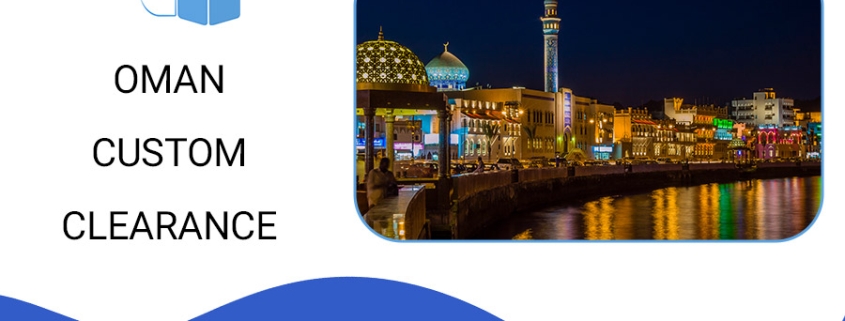


Leave a Reply
Want to join the discussion?Feel free to contribute!